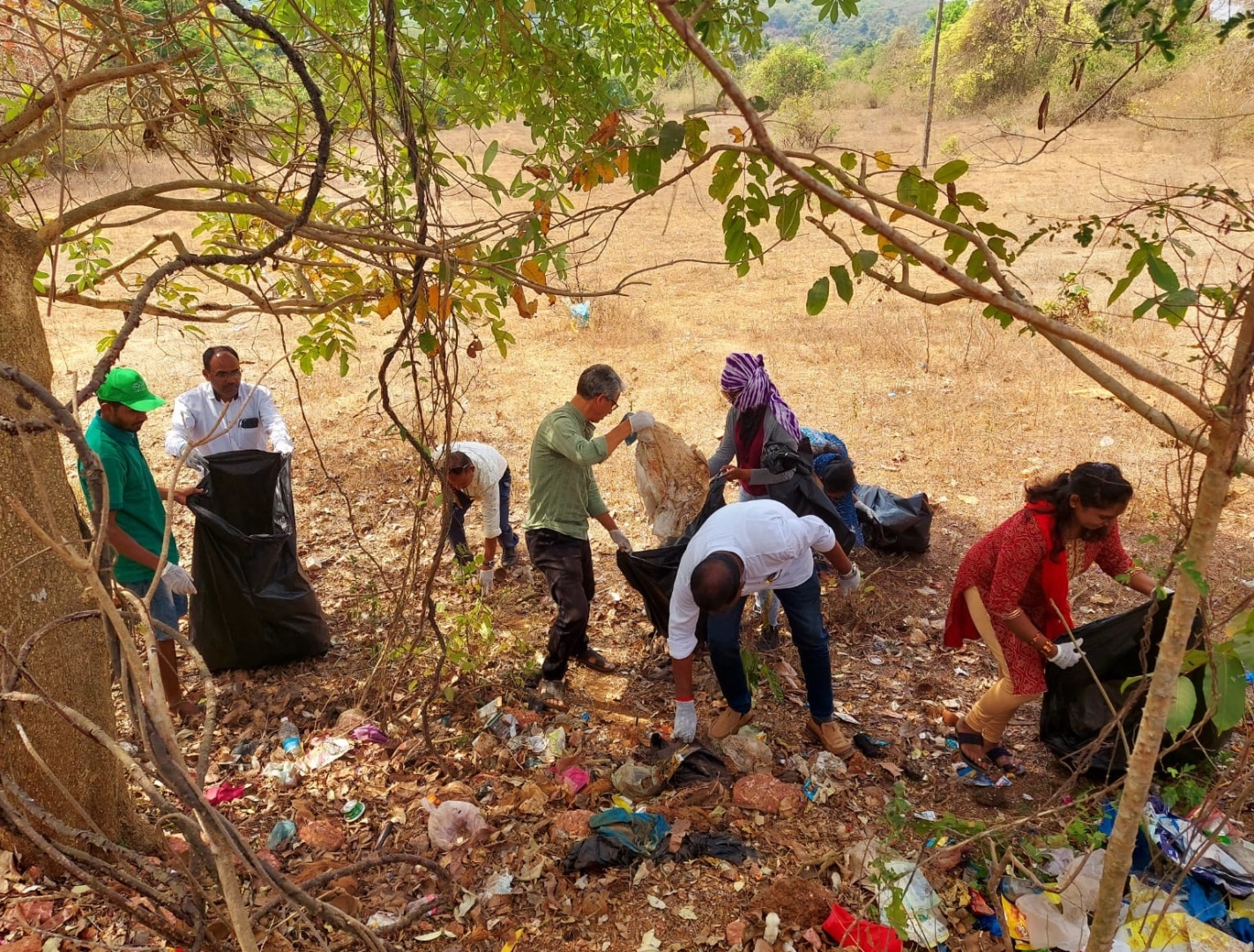Living with uncontrolled accumulations of trash appears to be the price we Goans are paying for the rapid urbanization which has consumed the state

“The Ministry of Youth Affairs and Sports (MYAS) commenced the observance of Sewa Pakhwada on September 17th, 2025, on the occasion of the 75th Birthday of the Prime Minister, Narendra Modi.” (Press Information Bureau)
‘Sewa Pakhwada 2025’ will be observed with activities like cleanliness drives, health and blood donation camps, tree plantation, youth marathons, exhibitions, and promotion of local products.
The fortnight-long campaign provides an opportunity for India’s youth and citizens to actively contribute to nation-building through services, fitness, awareness, and civic engagements and responsibilities.
The Ministry of Youth affairs and Sports has urged all individuals, institutions, and organizations to participate wholeheartedly in these activities, take pledges, and practice them in their daily lives.
While it is heartening to know that the programme aims to provide awareness on health, environment, and self-reliance, marking service and nation-building initiatives, one can’t but wonder whether it is a lack of awareness or the total disregard for the central aspects which needs to be addressed first!
It is observed that instead of fostering these significant concerns driving individual behaviour and broader societal goals through public campaigns and initiatives, such ‘enterprises’ serve to be mere symbolisms.
As superficial representations, most of these initiatives are stripped of their core functions or meanings. Moreover, most of these drives garner political connotations as they are framed as national projects with a strong association to the government, linking national identity and ‘themes’ to political leadership and state patronage.
The ‘Swachh Bharat Mission’ for instance! As has been argued, the initiative integrated the public and private spheres into a national campaign, with the government declaring it a state-sponsored effort for collective nation-building, which inherently involves political framing and benefits.
However, the intermittent promotion of large-scale sanitation campaigns, the inconsistent application of cleaning practices, or the fluctuating public engagement with cleanliness initiatives over time is suggestive of a trend where the idea of cleanliness is not consistently emphasized.
The ‘Swachhata Pakhwada’ campaign which flagged off on September 17 in the state was marked by high-profile activities with legislators and ministers sweeping streets and cleaning garbage-strewn spots.
As an editorial in a leading daily succinctly put it, “These signs undeniably present a symbolic view of political will towards a cleaner Goa and make for social media optics”.
For a state like Goa which has yet to come to terms with the garbage menace that assails it, waste management should have been receiving the sort of attention where the cleanliness aspect of the whole process would have been accorded top priority in the order of things.
But alas, mounting heaps of waste which have grown to become prominent physical features of the region has significantly altered the landscape causing environmental degradation and public health problems.
Living with the uncontrolled accumulations of trash appears to be the price we Goans are paying for the rapid urbanization which has consumed the state.
With tourism as a primary economic driver, the Goan economy benefits from substantial contributions to the state’s GDP and employment, supporting livelihoods and creating business opportunities.
However, unsustainable tourism is visibly harming Goa by causing environmental degradation, with litter and waste overwhelming beaches and natural sites.
While a typical ‘Goenkar’ response to cleanliness in such a setting has been a profusion of protests and activism, ‘efforts’ made by the government to promote cleanliness have not helped matters either!
The nation celebrates ‘Gandhi Jayanti’ on October 2 every year! Honouring the memory of an individual and values through national commemoration is a powerful way to celebrate their legacy, foster national unity, and promote the principles they championed.
Mahatma Gandhi envisaged cleanliness as a vital component of personal and public hygiene, physical well-being, and a healthy environment.
“He believed that poor sanitation was a root cause of disease and epidemics, linked it to uncleanliness in the mind, and saw cleanliness as a path to prosperity and a key to a healthy, dignified life for all citizens.”
And such has been the modern generation’s outlook to cleanliness that it has had to depend on initiatives like ‘Swachh Bharat Abhiyan’ to jolt their memories and acclimatize themselves to a situation where ‘cleanliness’ features off-and-on as a mantra repeated sporadically.
Moreover, it has been observed that formalities have been prioritized over actual commitment to the cause’s underlying values, which in turn has brought about a feeling that commemorations today are all about outward compliance rather than an inner conviction.
The sincerity of the ‘observance’ does not even last a day with the initial enthusiasm fading away in equally fast time, leaving no lasting impact.
But having said that, government-sponsored campaigns like ‘Swachhata Hi Seva’ and ‘Swachh Bharat Mission’, where political leaders and ministers participate in public cleaning events to promote civic responsibility and public health, have to be seen as the best means to galvanize an indolent citizenry.
Understanding that keeping one’s surroundings clean and orderly is a fundamental need which, besides rendering a host of other personal benefits, fosters a sense of community responsibility, and protects the environment for future generations.
It is however quite dismaying to note that public enthusiasm for organized cleanliness drives does not often translate into consistent personal responsibility for maintaining cleanliness and hygiene in daily life.
While large groups participating in such civic campaigns are encouraging, this participation alone is insufficient without individual commitment to practices like proper waste disposal and personal hygiene to achieve lasting cleanliness and address systemic sanitation issues.
Although challenges remain in achieving consistent cleanliness, a focus on responsible consumption, home-based waste segregation, and responsible disposal by residents in every locality will ensure a gigantic step towards this realization.